Hello, my name is Segata and I’m a Paradoxaholic. With Paradox Interactive releasing The Art of War - the biggest expansion yet for Europa Universalis IV - with a huge list of extra features and Hearts of Iron IV due next year, I fear I may plunge further into the depths of addiction and the piles of unplayed games in my Steam library will grow larger as I play nothing but these games.
In light of my addiction and the release of a great looking expansion and what appears to be one of the best Paradox games to date, I thought it would be apt to discuss a developer which was the first major (non-Valve) developer to promise - and deliver on - Linux support for all their new titles from day one, as well as delve into the games which got me gaming on Linux.
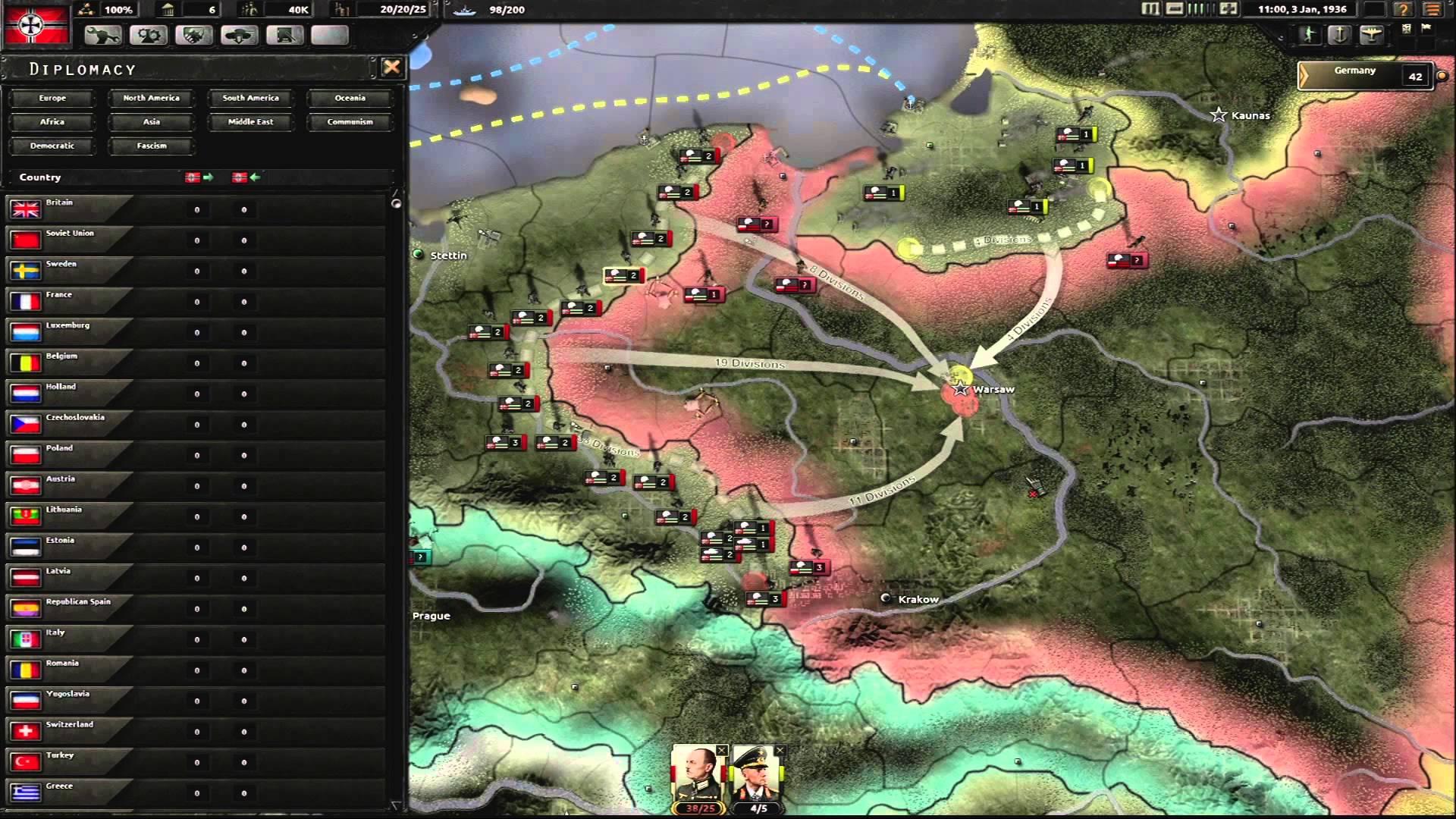 Hearts of Iron IV is set for release next year
Hearts of Iron IV is set for release next year
I first encountered one of Paradox’s games back in 2003 with the excellent Victoria: An Empire Under the Sun, and between that, the sequel, Hearts of Iron II and Europa Universalis III I put in hundreds - if not thousands - of hours into these games over the years. In 2009, I started using Linux and deleted Windows a month or two later. Soon after, Victoria II was released - the first game I ran on Wine after Paradox had posted guides on how to do so - and also eventually ruined my Laptop AMD graphics card from overheating due to playing it almost nonstop. Before this, I considered PC games to be something which were gone from my life along with Windows, though the experience with drivers and workarounds made it still somewhat of a novelty.
As time went on, I thought I had recovered from my addiction having spent a full year without so much as booting up Victoria II, not even to look at what the world map was like in 1836. Then in 2013 something extraordinary happened: Those pesky Swedes announced that all their future games would be released on Linux, with Crusader Kings II being the first to get ported that year. Not only this, but Paradox said that all future releases would receive day-one Linux support.
In July 2013 my dream and simultaneously nightmare had come true, and Paradox announced Europa Universalis IV with a release date for 13th August - less than two months away from the start of my final year at University. I quickly reinstalled Steam (which had previously only been used to test out Team Fortress 2) and pre-ordered a game for the first time in my life since I thought it worthwhile to support what was at the time perhaps the biggest Linux release. Indeed, if it wasn’t for the release of this game, I may well not be writing on GOL today or even playing native Linux games.
Despite having played some of the most complex, historically accurate, detailed and addictive grand strategy games ever in the form of the previous Paradox titles, nothing could prepare me for what was to come. The 13th came around and it was indeed the greatest strategy game I had ever played, they managed to strike a balance between making the game playable and fun for newcomers and also incredibly challenging and immersive for armchair generals like myself who sit there calculating each and every outcome whilst micromanaging even the most minute details.
In the next few months I had done everything from conquer half the world as a backwards pre-Russian Muscovite state to uniting the Holy Roman Empire as well a Conquering North America as a native American tribe which only starts with a few provinces - all in their brutal IronMan mode which cranks the difficulty up to hard and saves everything to a cloud automatically, not letting you reload and try again when you lose that key strategic war against the Ottoman Empire.
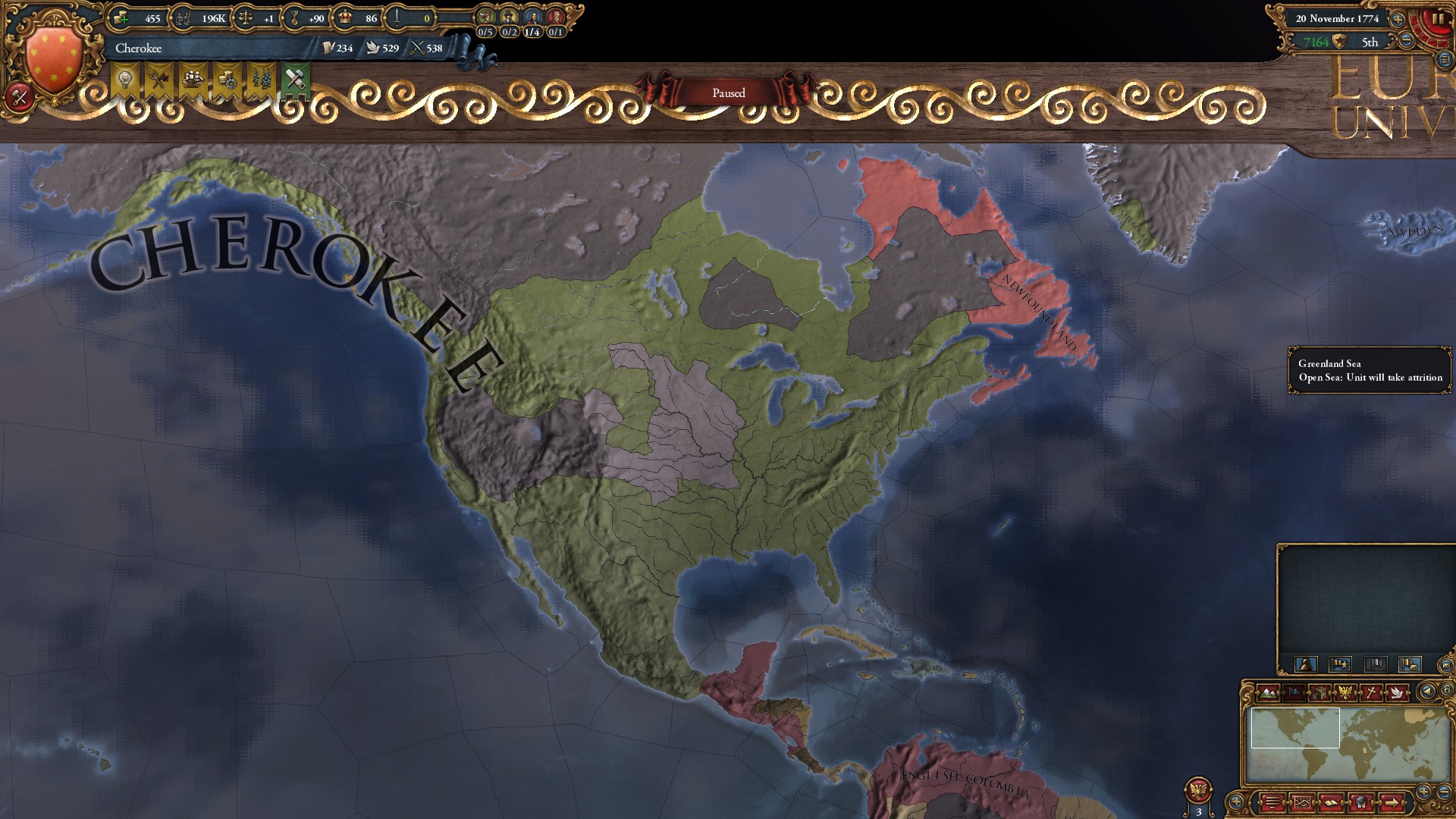 Build highways and shopping malls all over MY land? I don't think so!
Build highways and shopping malls all over MY land? I don't think so!
I can say confidence that I spent more time playing this game from 2013-2014 than I did on all my lectures, essays, reading, revision and dissertations in that final year, although some who know me may comment that this says more about my work ethos than love for Paradox games. Regardless of the reasons, how many games are there out there which allow you to change history by repelling European invasion as the Aztec , then go on to conquer Europe and make Christianity one of those forgotten “fads” in history like human sacrifice or the fax machine? None, and that is precisely why I love these games.
It has to be said that Paradox’s games have certainly always been a niche, made for people who think Civilization is far too simple and that Risk would be the perfect board game if it had a 1000 page manual and required a two week correspondence course to learn the ropes. However, with EU4 they have managed to make the game far more accessible, whilst simultaneously providing layers and layers of detail which need not concern someone who is new to the series but will offer challenge and difficulty which was not seen in previous titles for veterans. If you fall into the niche, then you will most likely spend hundreds of hours on one of their games, while at the same time any fans of more conventional strategy games will find themselves having a great time building alternate history through diplomacy and warfare.
In the last year, the game has gradually gotten even better - the first release made it far too easy to vassalise and integrate large countries when you were large enough yourself, which made the game far too easy if you knew what you were doing. This new expansion certainly puts the cherry on the icing, making changes to almost every aspect of the game, from big changes like adding hundreds of new provinces to conquer, to smaller (but extremely welcome) changes like being able to upgrade or sell them to allies.
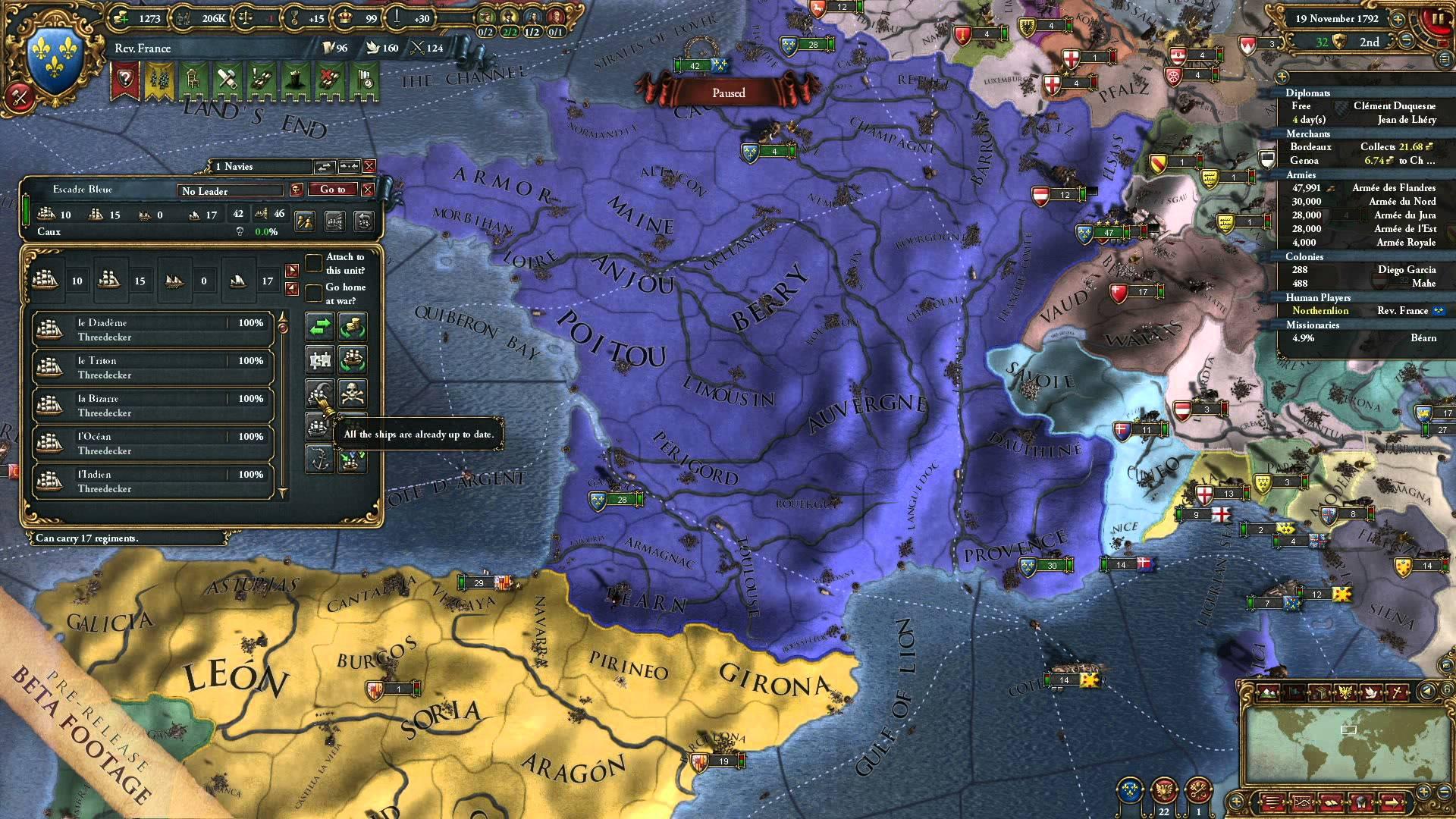
Some of the extra features include:
- Revamped Papal election and curia system
- Religious leagues In totally redone Reformation structure, to encourage religious conflict
- Hundreds of new provinces and dozens of new nations throughout game history
- New revolt system that traces general unrest
- Greater flexibility in managing and sharing fleets
- The creation of client states as a new form of subject ally
- Army construction template for easy rebuilding of destroyed forces
No doubt those without the expansion will also receive some new features, since Paradox’s policy seems to be one of releasing smaller updates along with DLC which have extra features for the die-hard fan.
So what were some of the games which led you to consider Linux as a serious gaming platform? I would also like to see some screenshots of your EU4 and CK2 exploits (no cheats preferably) if you play the games.
In light of my addiction and the release of a great looking expansion and what appears to be one of the best Paradox games to date, I thought it would be apt to discuss a developer which was the first major (non-Valve) developer to promise - and deliver on - Linux support for all their new titles from day one, as well as delve into the games which got me gaming on Linux.

YouTube videos require cookies, you must accept their cookies to view. View cookie preferences.
Direct Link
Direct Link
I first encountered one of Paradox’s games back in 2003 with the excellent Victoria: An Empire Under the Sun, and between that, the sequel, Hearts of Iron II and Europa Universalis III I put in hundreds - if not thousands - of hours into these games over the years. In 2009, I started using Linux and deleted Windows a month or two later. Soon after, Victoria II was released - the first game I ran on Wine after Paradox had posted guides on how to do so - and also eventually ruined my Laptop AMD graphics card from overheating due to playing it almost nonstop. Before this, I considered PC games to be something which were gone from my life along with Windows, though the experience with drivers and workarounds made it still somewhat of a novelty.
As time went on, I thought I had recovered from my addiction having spent a full year without so much as booting up Victoria II, not even to look at what the world map was like in 1836. Then in 2013 something extraordinary happened: Those pesky Swedes announced that all their future games would be released on Linux, with Crusader Kings II being the first to get ported that year. Not only this, but Paradox said that all future releases would receive day-one Linux support.
In July 2013 my dream and simultaneously nightmare had come true, and Paradox announced Europa Universalis IV with a release date for 13th August - less than two months away from the start of my final year at University. I quickly reinstalled Steam (which had previously only been used to test out Team Fortress 2) and pre-ordered a game for the first time in my life since I thought it worthwhile to support what was at the time perhaps the biggest Linux release. Indeed, if it wasn’t for the release of this game, I may well not be writing on GOL today or even playing native Linux games.
Despite having played some of the most complex, historically accurate, detailed and addictive grand strategy games ever in the form of the previous Paradox titles, nothing could prepare me for what was to come. The 13th came around and it was indeed the greatest strategy game I had ever played, they managed to strike a balance between making the game playable and fun for newcomers and also incredibly challenging and immersive for armchair generals like myself who sit there calculating each and every outcome whilst micromanaging even the most minute details.
In the next few months I had done everything from conquer half the world as a backwards pre-Russian Muscovite state to uniting the Holy Roman Empire as well a Conquering North America as a native American tribe which only starts with a few provinces - all in their brutal IronMan mode which cranks the difficulty up to hard and saves everything to a cloud automatically, not letting you reload and try again when you lose that key strategic war against the Ottoman Empire.
 Build highways and shopping malls all over MY land? I don't think so!
Build highways and shopping malls all over MY land? I don't think so!I can say confidence that I spent more time playing this game from 2013-2014 than I did on all my lectures, essays, reading, revision and dissertations in that final year, although some who know me may comment that this says more about my work ethos than love for Paradox games. Regardless of the reasons, how many games are there out there which allow you to change history by repelling European invasion as the Aztec , then go on to conquer Europe and make Christianity one of those forgotten “fads” in history like human sacrifice or the fax machine? None, and that is precisely why I love these games.
It has to be said that Paradox’s games have certainly always been a niche, made for people who think Civilization is far too simple and that Risk would be the perfect board game if it had a 1000 page manual and required a two week correspondence course to learn the ropes. However, with EU4 they have managed to make the game far more accessible, whilst simultaneously providing layers and layers of detail which need not concern someone who is new to the series but will offer challenge and difficulty which was not seen in previous titles for veterans. If you fall into the niche, then you will most likely spend hundreds of hours on one of their games, while at the same time any fans of more conventional strategy games will find themselves having a great time building alternate history through diplomacy and warfare.
In the last year, the game has gradually gotten even better - the first release made it far too easy to vassalise and integrate large countries when you were large enough yourself, which made the game far too easy if you knew what you were doing. This new expansion certainly puts the cherry on the icing, making changes to almost every aspect of the game, from big changes like adding hundreds of new provinces to conquer, to smaller (but extremely welcome) changes like being able to upgrade or sell them to allies.

YouTube videos require cookies, you must accept their cookies to view. View cookie preferences.
Direct Link
Direct Link
Some of the extra features include:
- Revamped Papal election and curia system
- Religious leagues In totally redone Reformation structure, to encourage religious conflict
- Hundreds of new provinces and dozens of new nations throughout game history
- New revolt system that traces general unrest
- Greater flexibility in managing and sharing fleets
- The creation of client states as a new form of subject ally
- Army construction template for easy rebuilding of destroyed forces
No doubt those without the expansion will also receive some new features, since Paradox’s policy seems to be one of releasing smaller updates along with DLC which have extra features for the die-hard fan.
So what were some of the games which led you to consider Linux as a serious gaming platform? I would also like to see some screenshots of your EU4 and CK2 exploits (no cheats preferably) if you play the games.
Some you may have missed, popular articles from the last month:
All posts need to follow our rules. For users logged in: please hit the Report Flag icon on any post that breaks the rules or contains illegal / harmful content. Guest readers can email us for any issues.
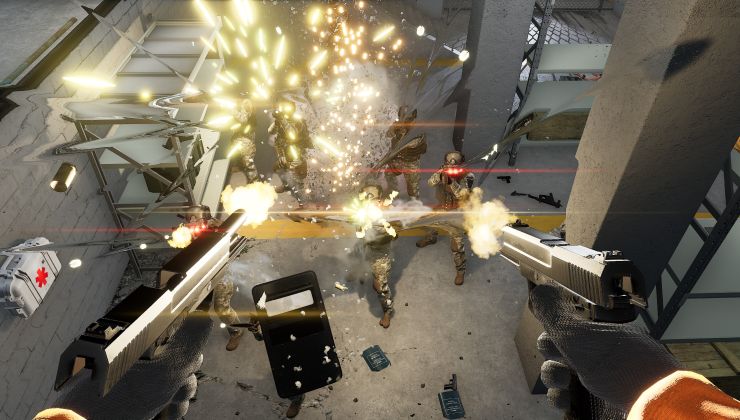
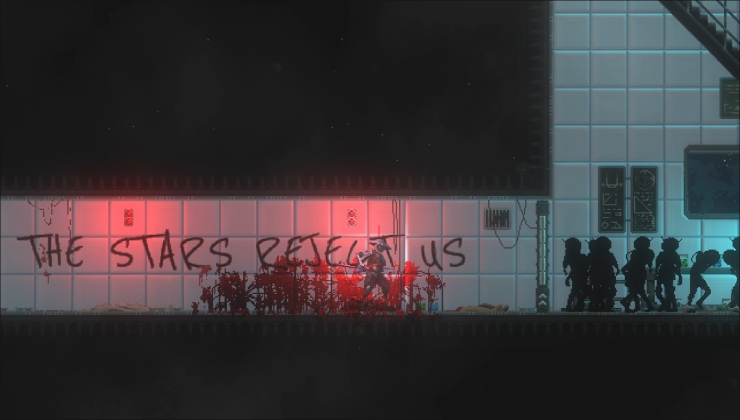

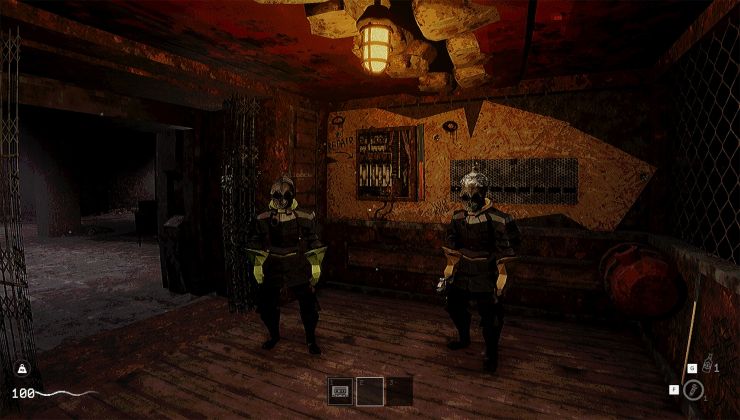
 How to set, change and reset your SteamOS / Steam Deck desktop sudo password
How to set, change and reset your SteamOS / Steam Deck desktop sudo password How to set up Decky Loader on Steam Deck / SteamOS for easy plugins
How to set up Decky Loader on Steam Deck / SteamOS for easy plugins
I am a sort of person that likes to know the minute details of game mechanics so I would know the optimal choice at any given moment. And there SO MANY MINUTE DETAILS in Paradox games it makes your head spin. Worst yet, they change them with every major DLC, even for those that don't buy them. Hence I still shy away from IronMan mode: I still hope to come to that day that I know exactly 'what that button does' before I choose my irreversible fate ;)
Indeed, I fell victim to my own micro-management in CKII. Finding that perfect bride with perfect skills and traits and figuring out the cheapest and/or sneakiest way to get her to my court against her wishes OR doing the same with title-claimants of my annoying neighbors became too tedious too fast.
But then EUIV happened ;D Here I finally found the perfect balance between micro-management and conquering the whole Europe. By the way, largest swathes of land are still gained diplomatically, not with fire and blood. As is historically accurate, war conquest is hard, 'unless you are the Mongols™'. So yeah, even compared to the stripped-down version in EUIV, CivV diplomacy menu is a joke.
Speaking of DLCs, Paradox are a smart bunch not only for creating perhaps world's most addictive games but for capitalizing on that addiction. There are SO MANY DLCs you need to watch your wallet ;)
October 30th can't come soon enough. I haven't played EU4 for a month and i am currently playing Wasteland 2 on my Manjaro box while i am waiting. Its certainly good times to be a Linux gamer. :)
I think I agree with just about every statement you made haha.
One thing I noticed in the comments and from my own gameplay is the psychological effect of these games. I learned that I have to shut down any Paradox game at least 2 hours before sleeping because it's so hard to snap out of the mindset of all these little numbers and possibilities going round your head - makes it impossible to sleep, kind of like having pure caffeine injected into your eyeballs.
That' what i always found with the old games. When something goes wrong, it's just too tempting to cheat and seems impossible not to cheat and do well.
You should try IronMan mode on EU4 (not sure if CK2 has it) because it takes the possibility of cheating away. I have had so much more fun playing that than with cheating. It's so satisfying when you lose 4 key provinces in a war and think all is lost, then 10 years later recover them and crush the country that annexed the provinces. It's really difficult at first, but you get used to making alliances with bigger countries that will protect you and generally thinking ahead and assessing threats. Makes the game much more addictive and fun :)
Ironman mode is the only way i play nowadays. I simply can't play without it. Nothing is like knowing that i can't reload while i am 20 hours into a game and declaring a daring war against my biggest enemy. There is simply no going back at that point.
I really love the game but, I have to say that eu4 and ck2 both have the same nasty graphic bugs. When I launch ck2/eu4 both the normal way either from shortcut or steam library and alt-tab out of the game and go back in the game it somehow changed my resolution which is a very annoying bug.I found a workaround for this by starting the game from the ck2/eu4 folder. Then I'm able to play but this gives additional graphic bugs.
I hope paradox will fix these issues since I'm not the only one with these problems :(
Beside this its a good port and faster ironman saves then windows!
The patch notes looks very promising, looking forwards to it!
That's cool. Were EU4 and CK2 the "must haves" for you to switch?
I have encountered that problem in EU4 on my laptop with optimus, but the desktop works fine (I used to run it windowed on the laptop so I could switch). The only graphical bug I get is some weird black marks all over the map but turning off shadows on the graphical options solved this.
I love this company and I was floored when they came out with their support for linux. My dual-booting days have almost completely stopped since they were ported over. EUIV was my first pre-purchase and I intend to do the same for HOIIV. Thank you Paradox!